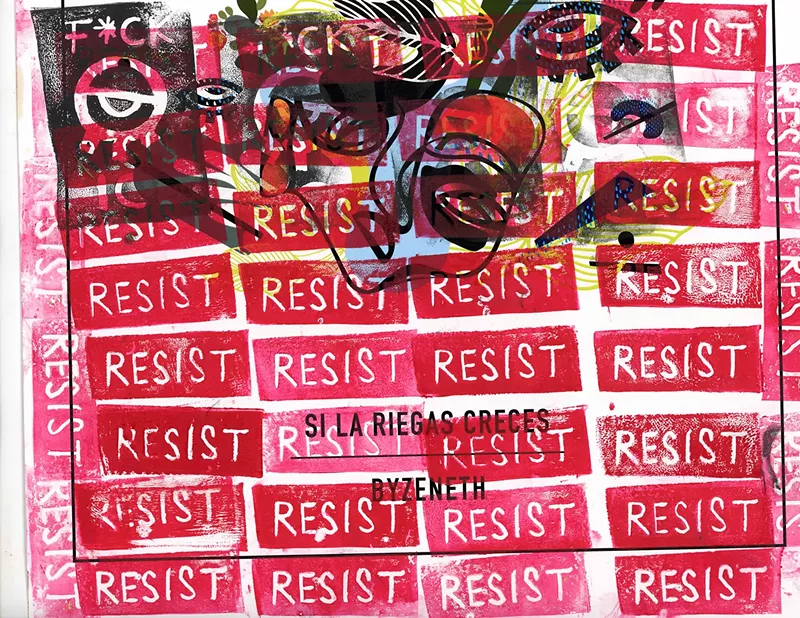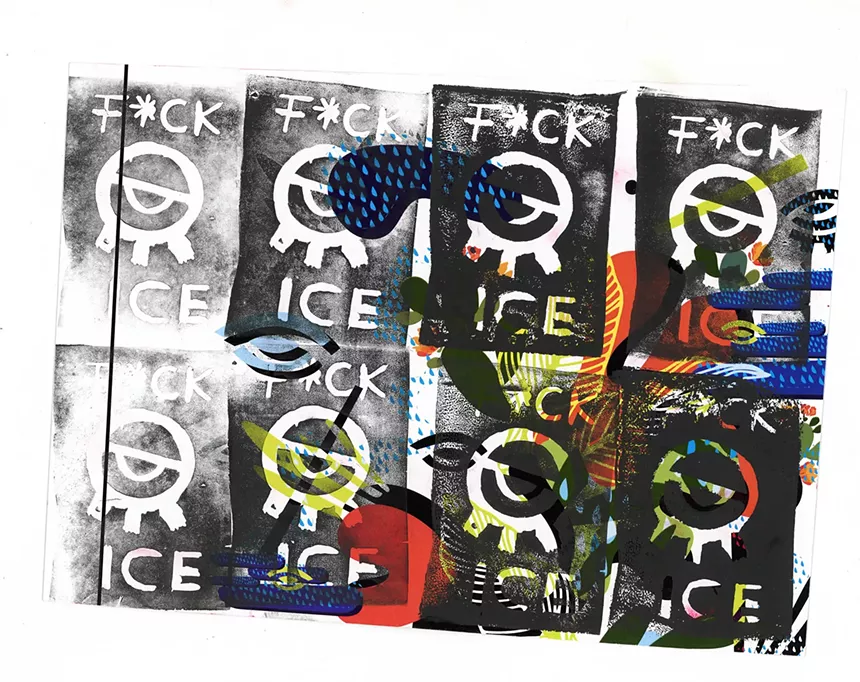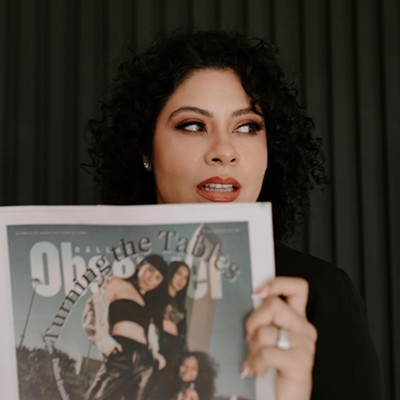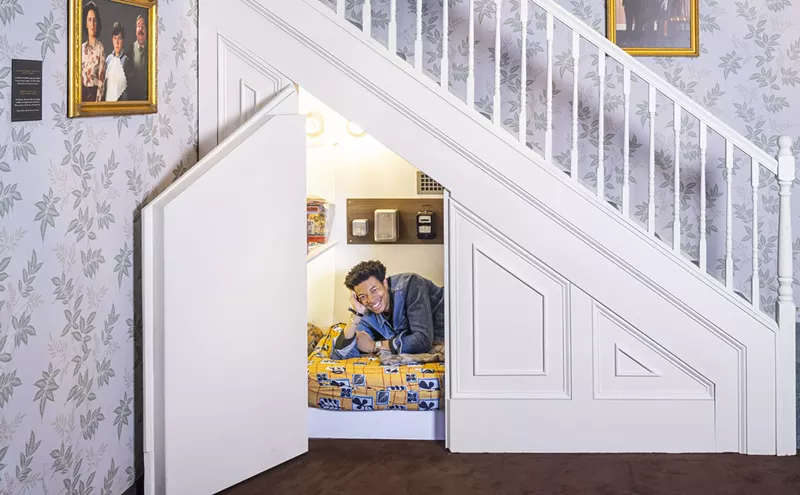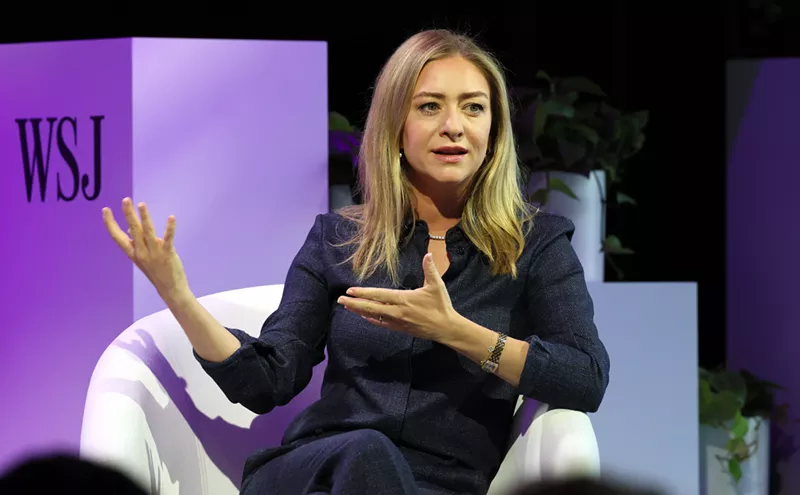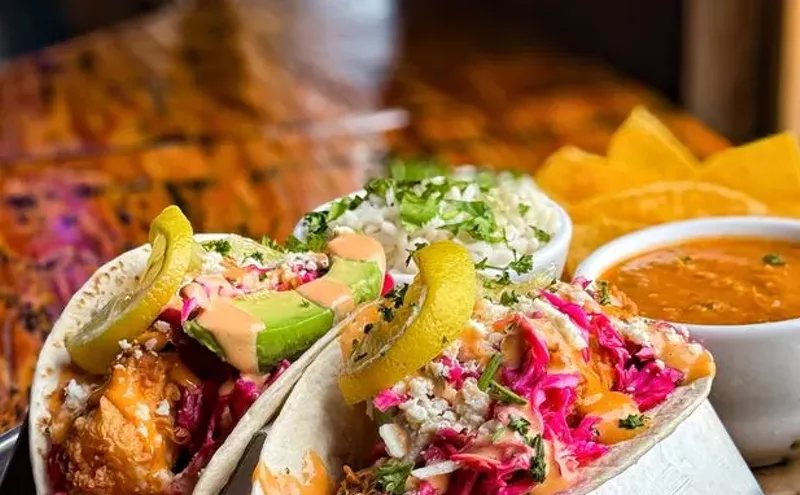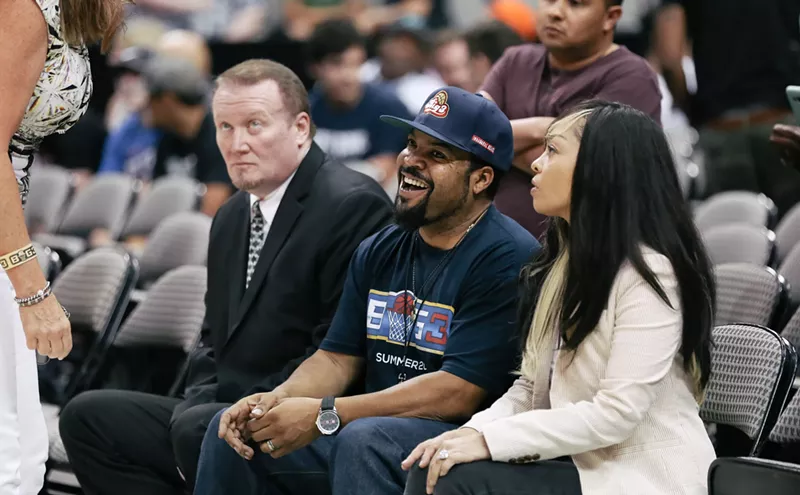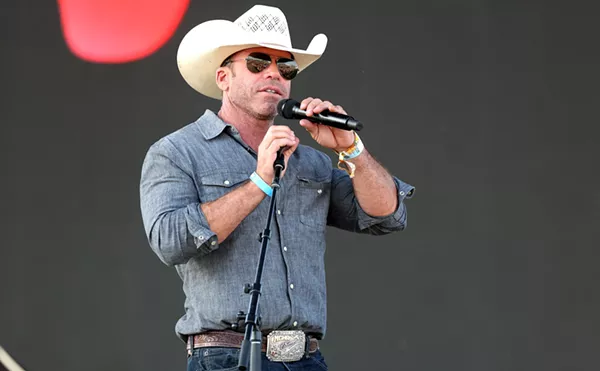The 10-year-old vibrated with excitement as she explored Saltillo’s rich cultural heritage and stunning landscapes. She couldn’t wait to tell her mother all about it, but when she came home no one was there.
“I have very big abandonment wounds from that still,” the artist says through gut-wrenching tears.
The mother traveled three days by foot, without food or water, to the United States. A cartel territory war had turned Coahuila into a slaughterhouse.
From 2007 to 2017, there were 200,000 murders and 32,000 disappearances in Mexico, including the 2011 massacre in Allende, Coahuila, according to the International Federation for Human Rights.
The artist’s mother fled in search of safety, work and a place where she didn’t fear for her children’s lives. The next year ByZeneth and her sister joined her.
“People are looking for a better life for their kids,” the artist says. “If you think walking through a jungle, walking through a desert for days, not knowing if you could die or not, to give your kids a better future, if that's a freaking crime, then I'm a criminal. It doesn't make me any less human than you, make me a better human than you, makes me more brave. That's courage. That's a superhero. To me, my mom's a superhero.”
President Donald Trump disagrees.
“They illegally broke our nation’s laws, and, therefore, they are criminals, as far as this administration goes,” White House Press Secretary Karoline Leavitt said Jan. 29. “I know the last administration didn’t see it that way, so it’s a big culture shift in our nation to view someone who breaks our immigration laws as a criminal. But that’s exactly what they are.”
Over the last two weeks, President Trump has taken executive action to carry out the “largest deportation effort in American history.” U.S. Immigration and Customs Enforcement (ICE) field offices, including the one in Dallas, have been instructed to aim for 75 arrests per day, reported The Washington Post on Jan. 26.
Local ICE agents arrested 84 individuals that day, according to KERA.
“This is a humanity crisis,” ByZeneth says. “It's a humanity crisis because we no longer see each other as humans.”
Since 2020, ByZeneth has risen as a prolific artist in Dallas. McDonald’s, the NCAA, Toyota, the Mexican National Soccer League, Dallas Auction Gallery and the Nasher Sculpture Center have collaborated with the artist. Her large-scale murals have playfully colored Dallas with hope. Themes of healing and cultural identity have woven themselves into the vibrant, fluid works that have re-energized the city.
Now, her art is a call for action.
The artist’s latest body of work is a call for humanity. “Resist,” “Solidarity” and “F*ck ICE” are stamped on various scraps of paper along with her iconic eye. The eye is no longer a sign of being seen and valued. It’s a watchdog.
‘We're watching you, the world is watching,” the artist declared hours before Trump ordered the construction of a 30,000-inmate migrant detention center in Guantanamo Bay. “We know, We see what you're doing and it's inhumane. When did we stop caring about other humans? When did ethics go out of the window? When did we stop caring about human suffering?”
The artist was protected under President Barack Obama’s Deferred Action for Childhood Arrival (DACA) policy from 2012 until last year. She intentionally did not renew.
“I want to go home,” she says “I want to build a community where I feel safe and comfortable.” Her plans were to voluntarily leave Dallas in the summer. Now, she fears how she’ll return home.
“I don't even know how to get out of here right now,” she says. “I can't even get on the highway because you get stopped. … What if I try to get on a plane and go to Mexico right now? Are they gonna stop me? Can I even make it to the airport?”
In the last two weeks, Dallas’ immigrant community has been driven into hiding. The artist is living within a seven-minute driving radius between her studio, home and current project site. She fears detainment, unsure of the treatment she’ll receive. Even so, she considers herself lucky.“It's a humanity crisis because we no longer see each other as humans.” - ByZeneth
tweet this
Other undocumented Dallas residents have quit working, she says. Soon, food and money will run out.
“At the end of the day, we can have all these issues, but the one thing that remains is human rights, and when you start violating human rights, that's your line,” the artist says. “That's the line that you don't cross. When did we lose that?”
The artist has created hundreds of hand-sized original artworks with “Know Your Rights” informational fliers on the back. These are being handed out to vulnerable communities.
Other anti-mass deportation artwork is being sold. All of the proceeds will be donated to grassroots organization Dallas For Change, for food distribution to local immigrants. One art piece is being held for acquisition.
This is her act of resistance and solidarity. “What else can we do, other than resist?” she says.
She encourages acts such as peaceful protest in place of those who cannot, information sharing, translating, distributing aid and connecting immigrants with resources. She urges the immigrant community to speak to youths and arrange for power of attorneys. To ByZeneth, they are the most vulnerable ones.
“We don't know what's coming next, but I know it's not good,” she says.

